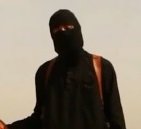The U.N. Security Council recently declared the Iraqi conflict a “Level 3 Emergency.” With all the articles and pictures in the news, if you are not a foreign policy guru, it can be hard to grasp the overall picture when it comes to the conflict in Iraq. However, it’s crucial that we educate ourselves on this issue. As a major world power, we cannot sit idly by while injustice is occurring.
First, what does the current Iraqi government look like?
There is an ongoing political power struggle between the Shiite majority and the Sunni minority in Iraq. The former Iraqi Prime Minister, Nouri al-Maliki, has not protected the Sunni minority under the coalition government like the U.S. has prescribed; therefore, last Monday, Iraqi President Fouad Massoum named Haider al-Abadi the new Prime Minister, replacing al-Maliki. The U.S. supported the nomination of Haider al-Abadi, a Shiite, on the basis that he is to move Iraq towards an inclusive government. Prime Minister Haider al-Abadi has been given 30 days to form this new government.
What is the current conflict in Iraq?
In a nutshell, the current conflict is not only between the two political factions. It involves yet another group, the (IS), which has exiled minority Christians and Yazidis and threatened Kurds in northern Iraq. In order to push back against the IS, the U.S. has sent advisors to Iraq. The U.S. has also sent airstrikes against the IS in the north as well as humanitarian aid to the religious minorities who have escaped to the Sinjar Mountain. Christians and Yazidis are two minority groups that are being targeted, and as most of us are well aware, the persecution they’ve incurred at the hands of the IS has been horrific.
 Who is the IS? Formerly known as the Islamic State in Iraq and Syria (ISIS), the Sunni militant group is now calling itself the Islamic State (IS). IS is led by Abu Bakr al-Baghdadi and aims to restore the Islamic Caliphate as the leader of the worldwide Muslim movement by forming a coalition that erases national boundaries. The plan is to make a state out of parts of Iraq and Syria that have Sunni majority; the U.S. has named IS a terrorist group.
Who is the IS? Formerly known as the Islamic State in Iraq and Syria (ISIS), the Sunni militant group is now calling itself the Islamic State (IS). IS is led by Abu Bakr al-Baghdadi and aims to restore the Islamic Caliphate as the leader of the worldwide Muslim movement by forming a coalition that erases national boundaries. The plan is to make a state out of parts of Iraq and Syria that have Sunni majority; the U.S. has named IS a terrorist group.
Who are the Yazidis? Many identify as Kurdish in ethnicity and combine Islamic religion with Zoroastrianism. Because Yazidis and Christians are both minority religions, both are major targets of the IS.
Why this conflict should concern Americans:
- Humanitarian Aid and Foreign Security: When others are being persecuted, we must act on their behalf. Proverbs 31:8 says we are to “[O]pen our mouths for the mute, for the rights of all who are destitute.” IS is a terrorist organization, and acts of terrorism should never be tolerated at home or abroad. Secretary of State John Kerry stated that the militant group’s “grotesque and targeted acts of violence bear all the warning signs and hallmarks of genocide. … [T]he world cannot sit by and watch innocents die.” He went on to say that the ideology of the group is a threat to Iraq, its region, and the United States.
- Religious Liberty: As one of our core issues, religious liberty is of the utmost importance to us at Concerned Women for America (CWA). Iraq needs to show proper representation and inclusion of the religious beliefs of all Iraqis — whether they are in the majority or the minority. Ideally, the U.S. needs to continue to push for a unity government that allows religious freedom and puts an end to the threat of violence or persecution by groups such as the IS.

